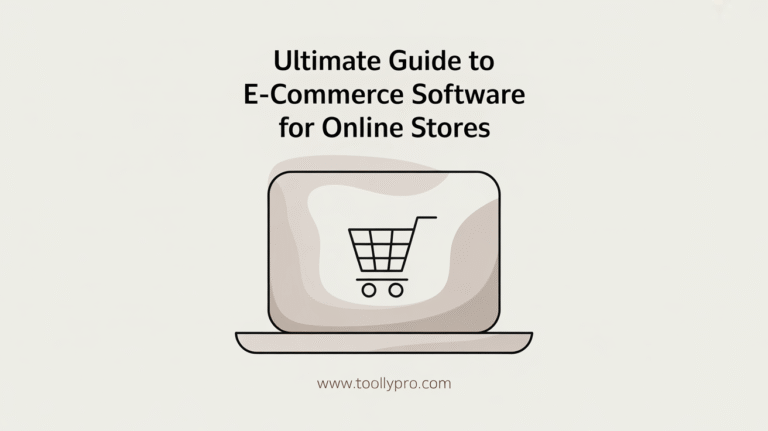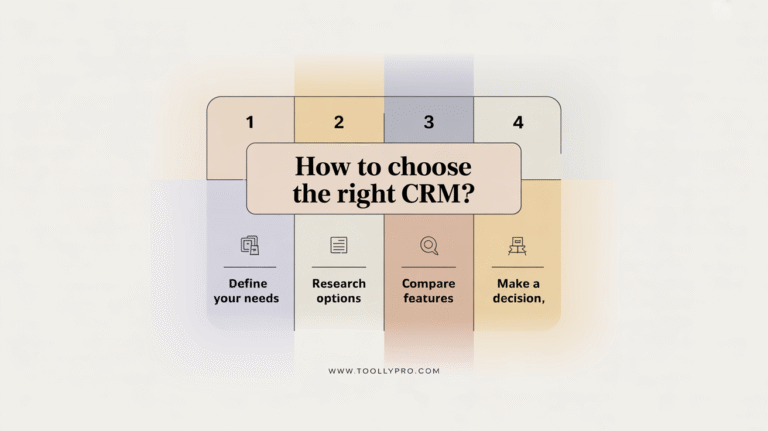Table of Contents:
- Hosted vs. Self-Hosted: The Fundamental Difference
- Shopify Overview: The All-in-One Solution
- WooCommerce Overview: The Flexible WordPress Powerhouse
- BigCommerce Overview: The Feature-Rich Scaler
- Head-to-Head Comparison: Key Differences
- Quick Comparison Table
- Who is Each Platform Best For?
- Conclusion: Making Your Choice
Choosing the right e-commerce platform is one of the most critical decisions you’ll make when starting or migrating your online store. It’s the foundation upon which your entire online business is built, impacting everything from user experience and design to marketing capabilities and scalability. Three giants dominate the landscape: Shopify, WooCommerce, and BigCommerce. But which one is right for you?
Comparing Shopify vs WooCommerce vs BigCommerce isn’t just about features; it’s about understanding different philosophies and business models. Are you looking for an all-in-one, easy-to-use solution, or do you prefer maximum control and customization? What’s your budget, technical expertise, and long-term growth plan?
This comprehensive comparison will break down the key aspects of each platform – ease of use, features, design, pricing, SEO, scalability, and support – to help you make an informed decision in 2025.
Hosted vs. Self-Hosted: The Fundamental Difference
It’s crucial to understand the core difference:
- Hosted Platforms (SaaS – Software as a Service): Shopify and BigCommerce are hosted platforms. This means they provide the software, hosting, security, maintenance, and updates as part of a monthly subscription fee. It’s like renting a fully managed storefront.
- Pros: Ease of use, security handled, predictable costs (mostly), integrated support.
- Cons: Less control over underlying code/server, reliant on platform’s ecosystem, potential transaction fees.
- Self-Hosted Platform (Open Source): WooCommerce is a plugin for WordPress, which is open-source software. This means the core software is free, but you are responsible for securing hosting, managing security, updates, backups, and performance optimization. It’s like owning the building and being responsible for all its upkeep.
- Pros: Maximum control and customization, potentially lower *initial* cost, leverages WordPress flexibility, no platform transaction fees (only payment processor fees).
- Cons: Requires more technical knowledge (or budget for help), you manage hosting/security/updates, costs can escalate with premium needs (hosting, themes, plugins).
This distinction influences almost every aspect of the comparison.
Shopify Overview: The All-in-One Solution

Shopify is arguably the most popular hosted e-commerce platform, known for its simplicity and comprehensive feature set out-of-the-box.
- Ease of Use: Shopify excels here. Its dashboard is intuitive, making setup, product management, and order processing straightforward even for absolute beginners.
- Features & Flexibility: Offers strong core e-commerce features (inventory, discounts, shipping, basic reporting). Extensibility comes via a large App Store, though relying heavily on apps can increase monthly costs. Includes POS solutions for physical retail integration.
- Themes: Provides a range of high-quality free and paid themes via the Shopify Theme Store. Customization is good via the theme editor, but deep code access (Liquid templating language) requires technical skill or hiring help.
- Pricing/Costs: Tiered monthly subscription plans (Basic, Shopify, Advanced). Additional costs include transaction fees (waived if using Shopify Payments), paid themes, and app subscriptions. Generally predictable monthly costs.
- SEO Capabilities: Good built-in SEO features (editable titles, descriptions, basic redirects). URL structure can be slightly rigid (e.g., `/products/`, `/collections/` prefixes). SEO apps available for more advanced features.
- Scalability: Highly scalable through plan upgrades (Shopify Plus for enterprise). The hosted nature means you don’t worry about server capacity.
- Support: Excellent 24/7 support via chat, email, and phone, plus extensive documentation and community forums.
- Pros: Very easy to use, quick setup, reliable hosting/security, excellent support, large app store, strong core features.
- Cons: Transaction fees (if not using Shopify Payments), less control over code, app costs can add up, potential URL structure limitations for advanced SEO.
Explore our Shopify blogs here
WooCommerce Overview: The Flexible WordPress Powerhouse

WooCommerce is an open-source plugin that transforms a WordPress website into a powerful online store. It’s the most popular e-commerce solution globally by market share, primarily due to its flexibility and integration with WordPress.
- Ease of Use: Steeper learning curve than Shopify, as you need familiarity with WordPress itself. Less intuitive for complete beginners but very familiar for existing WordPress users.
- Features & Flexibility: Core WooCommerce offers basic e-commerce functions, but its true power lies in the vast ecosystem of WordPress themes and plugins (both free and paid). You can build almost any functionality imaginable, from complex product variations to subscription models and booking systems. Themes: Access to thousands of WordPress themes, including many specifically designed for WooCommerce. Ultimate design flexibility, especially when paired with page builders (Elementor, Beaver Builder, etc.).
- Pricing: The core WooCommerce plugin is free. However, the Total Cost of Ownership (TCO) includes: web hosting (essential), domain name, potentially a premium theme, premium plugins/extensions for specific features (e.g., advanced shipping, subscriptions), and potentially developer costs for customization or troubleshooting. Costs can be very low initially but can grow significantly depending on needs. No platform transaction fees.
- SEO Capabilities: Excellent, leveraging WordPress’s inherent SEO strengths. Full control over URLs, metadata, and content. Powerful SEO plugins like Yoast SEO or Rank Math offer deep optimization capabilities.
- Scalability: Highly scalable, *but* performance depends heavily on your hosting plan, theme/plugin quality, and optimization efforts. Requires proactive management as you grow.
- Support: Relies on community support (forums), extensive documentation, support from your hosting provider, and potentially paid support from theme/plugin developers or hired experts. No single point of contact like Shopify/BigCommerce.
- Pros: Unmatched flexibility and customization, full control over site, leverages WordPress ecosystem, potentially lower TCO (depending on needs), excellent SEO potential, no platform transaction fees, huge community.
- Cons: Steeper learning curve, requires managing hosting/security/updates, costs can be less predictable and potentially high, support is fragmented, performance depends on optimization.
Check out our blogs on WooCommerce.
BigCommerce Overview: The Feature-Rich Scaler

BigCommerce is another leading hosted platform, often seen as a direct competitor to Shopify, but with a stronger emphasis on built-in features rather than relying heavily on apps.
- Ease of Use: Generally user-friendly dashboard, though perhaps slightly more complex than Shopify due to the number of built-in options. Still significantly easier than WooCommerce for non-technical users.
- Features & Flexibility: Excellent range of built-in features, including advanced product options, multi-channel selling (Amazon, eBay, social), promotions, and SEO tools often requiring apps on Shopify. This can lead to lower long-term costs compared to an app-heavy Shopify store. Still has an app store for further extension. Strong B2B features on higher plans.
- Themes: Good selection of modern free and paid themes. Uses the ‘Stencil’ theme framework, offering decent customization via the visual editor and full code access for developers.
- Pricing: Tiered monthly subscription plans (Standard, Plus, Pro). Crucially, **no platform transaction fees** on any plan, regardless of the payment gateway used. However, plans have annual sales volume thresholds; exceeding them requires upgrading to a higher tier, which can be a significant jump.
- SEO Capabilities: Very strong built-in SEO features. Offers good control over URLs (customizable), metadata, redirects, and includes features like an automated image ALT tag generator (though custom ALT text is better). Generally considered very SEO-friendly out-of-the-box.
- Scalability: Excellent scalability, designed for growing businesses. BigCommerce Enterprise offers robust solutions for large-volume sellers. The hosted nature ensures reliability.
- Support: Good 24/7 support via chat, email, and phone (support quality can vary by plan/issue complexity), plus documentation and community forums.
- Pros: Rich built-in feature set (less app reliance), no platform transaction fees, strong SEO capabilities, highly scalable, good multi-channel integration, solid B2B options.
- Cons: Sales volume limits can force costly plan upgrades, potentially slightly steeper learning curve than Shopify initially, theme selection might feel smaller than Shopify’s.
Check out BigCommerce here!
Head-to-Head Comparison: Key Differences
Let’s summarize the core battlegrounds in the Shopify vs WooCommerce vs BigCommerce debate:
- Ease of Use: Shopify wins for absolute beginners. BigCommerce is also user-friendly. WooCommerce requires WordPress familiarity and technical upkeep.
- Cost Structure: Shopify/BigCommerce = Predictable monthly fees (+ Shopify transaction fees/apps, BigCommerce plan upgrades based on sales). WooCommerce = Low/free start, but variable costs for hosting, themes, plugins, maintenance.
- Customization & Control: WooCommerce offers near-limitless control. Shopify and BigCommerce offer good customization within their frameworks and via apps, but less core control.
- Built-in Features: BigCommerce leads here, potentially reducing app dependency. Shopify has strong core features but relies more on apps for advanced functions. WooCommerce is basic initially, relying heavily on plugins.
- SEO: All are capable. WooCommerce offers the most granular control via plugins. BigCommerce has excellent built-in SEO. Shopify is good but has some minor rigidity.
- Scalability: All scale well. Shopify/BigCommerce scale easily via plan upgrades. WooCommerce scalability depends on robust hosting and optimization.
- Support: Shopify and BigCommerce offer centralized 24/7 support. WooCommerce relies on community, documentation, and vendor-specific support.
Quick Comparison Table
| Feature | Shopify | WooCommerce | BigCommerce |
|---|---|---|---|
| Type | Hosted (SaaS) | Self-Hosted (WordPress Plugin) | Hosted (SaaS) |
| Ease of Use | Very High | Moderate (Requires WP knowledge) | High |
| Pricing Model | Monthly Subscription + Transaction Fees* | Free Core Software + Hosting/Theme/Plugin Costs | Monthly Subscription (No Platform Fees) |
| Customization | Good (Themes/Apps) | Very High (Themes/Plugins/Code) | Good (Themes/Apps/Built-in) |
| Built-in Features | Good Core Set | Basic Core Set | Very Strong Core Set |
| App/Plugin Ecosystem | Large App Store | Vast Plugin Ecosystem | Good App Store |
| SEO Control | Good | Excellent (with plugins) | Very Good |
| Support | Excellent (24/7 Centralized) | Fragmented (Community/Vendors) | Good (24/7 Centralized) |
| Scalability | Excellent (Plan Upgrades) | Excellent (Requires Hosting/Optimization) | Excellent (Plan Upgrades) |
Who is Each Platform Best For?
- Choose Shopify if: You prioritize ease of use above all else, want a quick launch, need reliable hosting and support included, and prefer predictable monthly costs (and potentially use Shopify Payments). Great for beginners and businesses wanting an all-in-one solution.
- Choose WooCommerce if: You already use or love WordPress, want maximum control and customization, are comfortable managing technical aspects (or have the budget to outsource), need specific complex features achievable via plugins, and want to potentially minimize long-term platform fees (while managing other costs).
- Choose BigCommerce if: You want a hosted solution with a very rich set of built-in features (reducing app reliance), need robust SEO tools out-of-the-box, plan significant growth (scalability), want zero platform transaction fees, or have B2B requirements.
Conclusion: Making Your Choice
There’s no single “best” e-commerce platform in the Shopify vs WooCommerce vs BigCommerce battle. Only the best fit for your specific needs, budget, technical skills, and business goals.
Shopify offers unparalleled ease of use. WooCommerce provides ultimate flexibility for those comfortable with WordPress. BigCommerce strikes a balance with powerful built-in features on a hosted platform.
Carefully evaluate your priorities regarding cost, control, features, ease of use, and scalability. Consider starting free trials where available (Shopify, BigCommerce) or setting up a test WordPress site with WooCommerce to get a feel for each platform’s interface and workflow. Choosing wisely now will save significant headaches down the road.
Ready to build your store? Explore our detailed reviews and guides:



